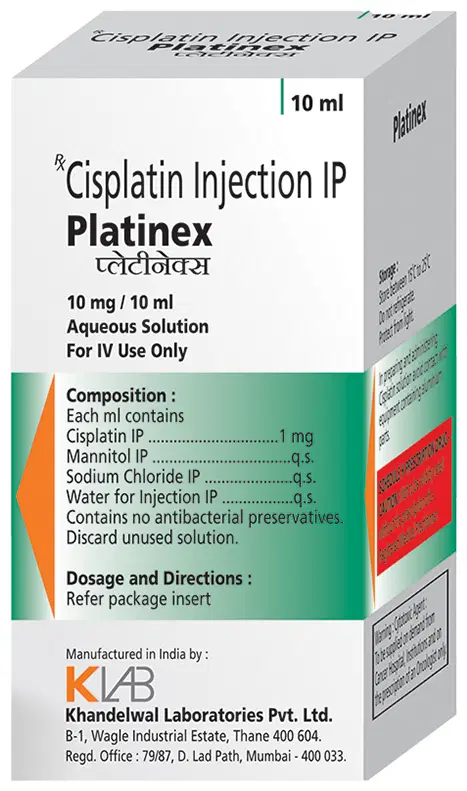Cisplatin
Cisplatin is a platinum-based chemotherapeutic drug commonly used to treat various types of solid tumors, including testicular and ovarian cancers. In some cases, it may also be effective for non-small cell lung cancer and head and neck cancers, especially when used in combination with other medication.
The primary mechanism of cisplatin is its alkylation action, which hinders the replication and transcription processes of DNA, leading to cell damage and, ultimately, cancer cell death. When used in chemotherapy regimes, it is often combined with additional agents to enhance its efficacy while minimizing side-effects and resistance.
To maintain patient safety, cisplatin administration should follow proper guidelines, including regular dosage adjustments and monitoring of patient biomarkers, renal functions, and electrolyte concentrations. Common side-effects associated with cisplatin use include nausea, vomiting, and hearing impairment due to its potential ototoxicity, thus requiring prompt medical attention whenever these symptoms arise.

Showing 13–24 of 27 results
Showing 13–24 of 27 results





